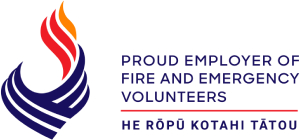Psychological First Aid
Alma Urbitztondo, MAPSY
https://www.kalandraproducts.com/shop/mental-health-in-the-workplace
Psychological First Aid (referred to as PFA) is an emotional bandage that responds to actions. It helps people in distress feel calm and supported while coping with challenges. It assists them to manage their situation and make an informed decision.
PFA is not focused on relieving the trauma. It is focused on engagement, safety stabilisation, needs assessment, education, coping, providing info on services.
A person’s mental health can be impacted significantly during times of crisis, i.e. relationship break-ups, social challenges, poverty, health, shootings and incidents of mass violence, sexual abuse, domestic violence etc.
PFA is provided by trained volunteers, first responders and members of the public to help support people in distress. You don’t need to be an expert mental health specialist but, in a crisis, observe what is happening first then find out or ask if someone needs help. Not everyone wants psychological first aid. Some cope with crisis or difficult situations by themselves while other choose help from family and friends.
You begin as a Psychological First Aider when: you see someone that looks or sounds distressed; a person asks you for assistance; someone approaches you to assist another person.
People’s responses differ when facing death or injury to themselves or others. Some experience feelings of fear that evoke strong physical and emotional distress like guilt, sadness, relief, anger, fear, anxiety, numbness, increased heartbeat, sweating, shaking, trembling or shortness of breath which makes it difficult to decide or comprehend information.
Complex reactions from traumatic situations incudwe panic attacks, feelings of overwhelming anxiety resulting in anger or aggressive behaviour, self-harm or suicide, prolonged grief, sleeping problems, flashbacks.
An Acute Stress Reaction (ASR) can follow a traumatic event. It manifests through reduced levels of consciousness, disorientation, agitation or overactivity, withdrawal and feeling emotionally numb may result. Physical symptoms can be palpitations, nausea, headaches, chest pain and breathing difficulties which can appear instantly and disappear within days. (Clinical Research Unit for Anxiety and Depression (n.d.). Trauma. https://crufad.org/for-clinicians/trauma/)
Find a quiet space to perform PFA so helper and person feel safe and comfortable. Be prepared with reactions from people affected by the crisis. Check for safety. Recognise your limits and identify if professional care is needed. PFA is not a replacement for professional care.
When assessing a situation and person do so in a sensitive matter. Provide a person-centred approach respecting the person’s dignity; if severely distressed PFA can be provided during or in the immediate aftermath of a stressful event; in the presence of the affected person be mindful of cultural contexts (gender, age, power-relations, touching behaviour, beliefs, and religion); respect privacy and confidentiality and provide emotional and practical support; set aside your own biases and prejudices; allow the person to make their own decisions; know your limits as a helper and be honest and trustworthy; explain that while they may not want the help now, they can access support in the future; end your help in a respectful manner.
https://www.kalandraproducts.com/shop/mental-health-in-the-workplace
Back to Blog







